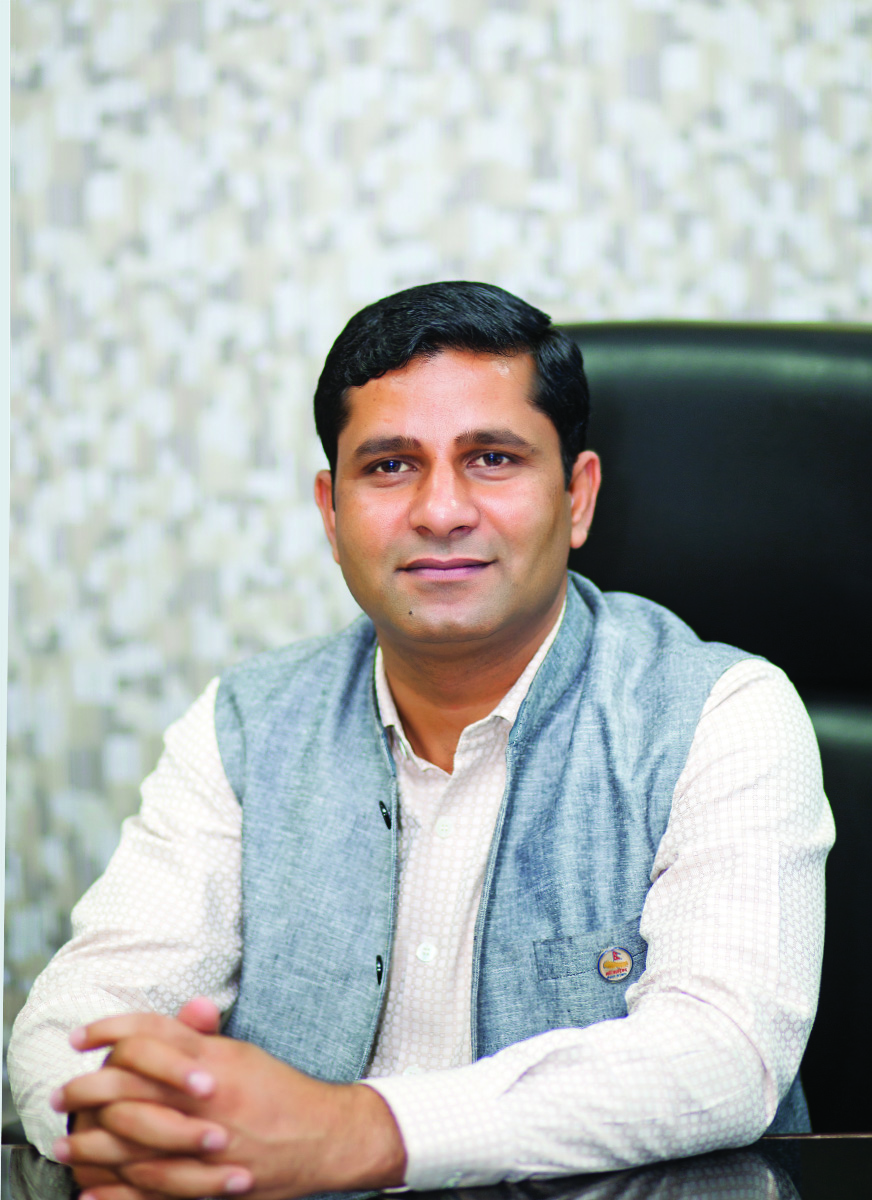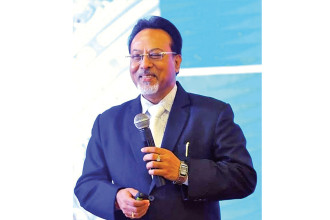
Mohamed Istiyak Rai launched his political journey with RPP as a cadre before he moved to Madesi Janadhikar Forum Nepal (MJFN). Rai was central when the Madesh based movements established MJFN as a strong regional political force in the Terai belt. As its central member, Rai became the Minister for Labour and Transport Management in 2010.Currently Rai is serving as the Minister of Urban Development.
Avant Shrestha of B360 met the minister to learn about his political journey and the plans for Nepal’s urban development under his leadership.
What has your life journey been like?
I believe there is no such thing as an “easy journey”. And to be honest my journey has been very interesting and demanding. Initially my path was different as my parents wanted me to become a doctor. I have six brothers and all five of them pursued a different profession. In the 1999 elections my father and grandfather were heavily involved in politics, and I felt that this was the right path for me as well. I was preparing for my medical entrance exam at that time but felt compelled to give up my own and my family’s dream of me becoming a doctor. Instead I chose to pursue a degree in Political Science.
My political journey has been a challenging one. Over the years I have seen lots of hardships and struggle that our citizens have been through. Personally I have been injured in protests, seen friends lose their limbs and even lives. However, I believe that if we want to achieve a goal, we have to struggle. Challenges in life are a lesson and if we do not learn from them then we cannot achieve any goal for the country.
What are your responsibilities as the Minister of urban development?
Our work lies in city development that consists of housing and physical planning and these are our focus. We work on improving these sectors. Additionally, our responsibilities are related to the planning and development of infrastructure in the country’s urban areas as well as in peripheral areas. It is also our responsibility to study the future effects of this and plan out the roads in the city accordingly.
Housing is a fundamental right according to our constitution, and we believe that ever Nepali citizen has the right to a home. We are supervising these aspects.
Lastly, we are looking to supervise town planning in 18 Terai towns as the previously constructed structures and plans have become outdated. We will be closely working towards rebuilding those cities and rejuvenating those areas.
What stage are we in the planning for a Smart City?
It is impossible to make a Smart City in Nepal according to international concepts. There are many politicians who have announced that we would build smart cities and as a result our department started working on it. However as we could not adopt the European model, and have set up five indicators for a smart city in the context of Nepal, which we will start working on from next year. While planning for a smart city we have to understand that every aspect of the smart city eco-system will be inter-related such as transportation, education, waste management and even the health sector. So before implementation we have to thoroughly plan for it.
What are the biggest challenges you face as the Minister of Urban Development?
Today cities are being built without proper planning. After the earthquake there were a lot of losses and the importance of urban planning in cities was finally understood. The regulations were also reviewed. Certain regulations for housing plans and roadways were allocated as well. Additionally, we conducted research and studied the city’s population density and increase of population in certain areas of the city. Residential and commercial buildings today can only be constructed in certain areas and can be built up to a certain number of floors. We also estimated the increase in vehicles and the burden the city must hold, and based on that and the amount of space we have for roads, we formed a regulation on road management and buildings as well.
If things go on as it is and according to the current policy where you’re allowed to build a tall house in very less amount of space, Nepal will not be able to handle the increase in population. In the short term and from a business point of view it may seem good, but in the long term, it will hurt the city. The challenges we are facing is implementation of our policies. The general population should adhere to policies because it is ultimately for their own good.
How involved are foreign investors or foreign construction companies in urban development in Nepal?
Currently the ADB’s loan support program has helped us plan for the city’s development. Also there have been talks of aid from World Bank but the major funds are provided by the government itself. World Bank is also in the process of studying some of our cities. Also, IIBI and China are studying it, but the major role is of the government.
Has investment in infrastructure been good?
We need to understand that when foreign investment comes to Nepal, it means that there is an opportunity here. We should not be negative towards foreign investment and support and connect it with nationalism. Let’s say, when we travel abroad we do it to create opportunities for ourselves or our children. Similarly, when foreign companies or investment comes into Nepal, we should look at them as opportunities.
Two years ago we introduced the National Urban Development Strategy (NUDS). What progress have we made so far?
What happened two years ago was really important but they will need to change it with time. Of course we will add on that program. It will not go to waste; it is an important document but we will add on it as we move forward.
How can we develop technical industries like civil engineering and environmental engineering?
Right now we do have people who have studied abroad and come back to Nepal. I think that the government has a goal and we have started talks about opening a technical university here in Kathmandu that meets international standards. Regardless of a specific technical field like architecture, civil engineering or environmental engineering or mechanical engineering and even scientists; it is important that we produce and hold capable manpower in the country. Currently, we do not have the facilities to support specialisation in certain fields but in the future if we create such platform for our youths, there will be no need to go and study abroad.
What efforts has the Ministry of Urban Development conducted to better inform the public about urban development efforts?
Urban affair works are related to environmental, social and educational services. When we prepare an urban infrastructure, schools, hospitals, waste management and other similar services fall under it. The general public assumes that many of these are the responsibilities of our government. Yes, the government is liable however the public should also be responsible in the efforts to implement urban development strategies. We need the support and effort of the public to have fully developed and functioning cities.






